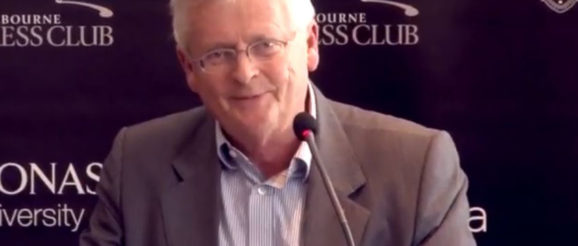Bipartisanship the innovation key

NSW Innovation and Productivity Council chair Neville Stevens has called for both sides of politics at state and federal to take a bipartisan approach to improving Australia’s overall innovation and productivity performance.
“If we look at the international strengths of the regions that are doing very well, it’s because of their long term consistency. These things take a long while to develop and you need policy – where governments are all working together – to make it happen,” Mr Stevens told InnovationAus.com.
“What it means is that bipartisanship is very important in these areas. We need that focus across both sides of government.”
The remarks come as the NSW IPC released its report, The Innovation Economy, which examines the current state of the “innovation economy” in NSW and how government intervention is working to support the growth of it.
The report observed how government can contribute to the economy by having a “steering hand” in five key areas through public policy developments. These areas are adjusting business climate and institutions; addressing infrastructure gaps; tackling investment deficits; global competitiveness; and correcting information and coordination failures.
Speaking at the report’s launch in Sydney, Mr Stevens said long-term government policies had been responsible for driving the innovation success of regions such as Ontario, Massachusetts, and Bavaria.
“All of these successful regions have decades [of support] behind them. Innovation isn’t an overnight success. It’s the result of a range of consistency of government policies over a long period of time,” he said.
“I think it’s an area that we can have a look at in Australia. There is a tendency sometimes that we perhaps have not been sufficiently long term when it comes to innovation.”
Eileen Doyle, former CSIRO deputy chairman and current non-executive director of GPT and Boral, agreed there needed to be more cooperation between the state and federal government to facilitate a strong innovation ecosystem in Australia.
Ms Doyle said it will help facilitate key areas that come into play when building out a successful innovation system – capital funding, ideas invention, supportive infrastructure, talent and monetisation.
“We still need far better coordination between state governments and federal government and bodies, and if you can get that in terms of grants, business activities, and tax support then one can leverage off the other, and you can get a snowballing effect,” she said.
“There still needs to be a lot more support for research organisations. We have to encourage more work in cooperative hubs and facilitate global value chains.
“There’s a great onus on federal and state governments to continue to encourage that spending,” said Ms Doyle.
Jobs for NSW chairman David Thodey added that once consistent policies are in place it will make NSW more attractive for international companies and venture capitalists to setup a local presence.
“One of the biggest or easiest test is ‘why would a multinational invest in NSW?’ Often it’s about regulatory certainty and stability of government. They look for strong economies. They look for a well trained workforce,” he said.
“Don’t forget our mining and agriculture sector has been the mainstay of our economy and we need to reinvent it going forward.”
